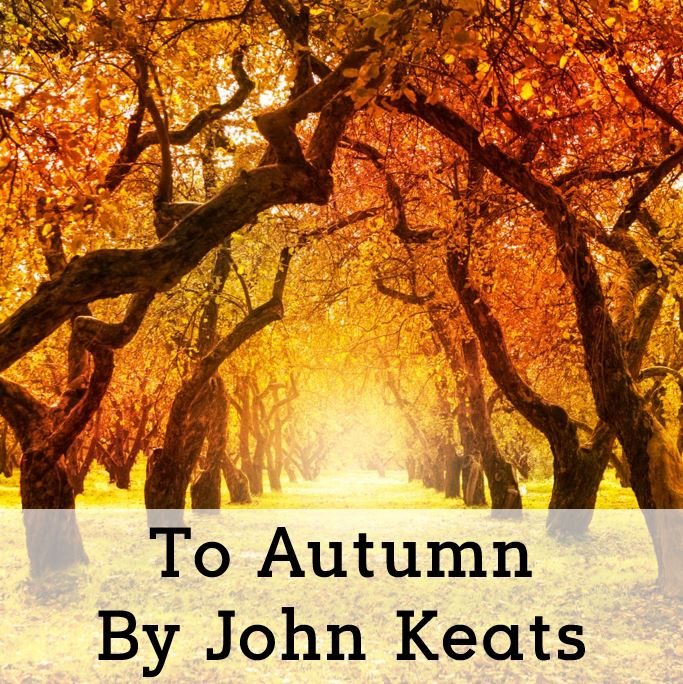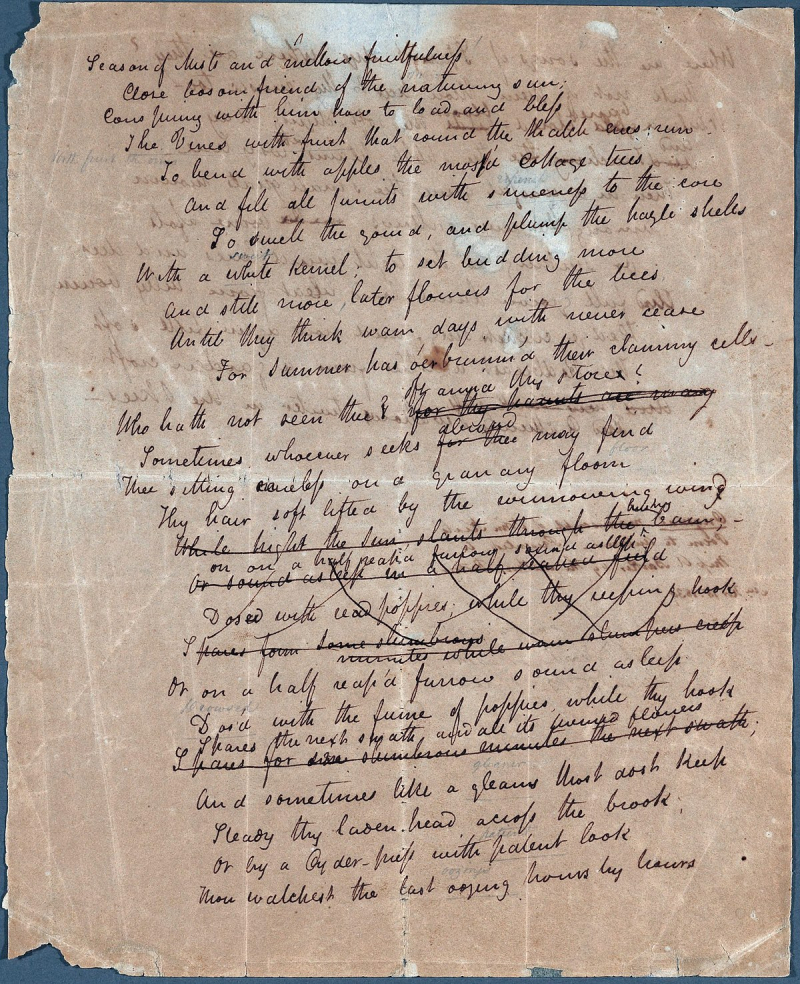To Autumn
Excerpt:
Season of mists and mellow fruitfulness,
Close bosom-friend of the maturing sun;
Conspiring with him how to load and bless
With fruit the vines that round the thatch-eves run;
To bend with apples the moss'd cottage-trees,
And fill all fruit with ripeness to the core;
To swell the gourd, and plump the hazel shells
With a sweet kernel; to set budding more,
And still more, later flowers for the bees,
Until they think warm days will never cease,
For summer has o'er-brimm'd their clammy cells.
The final of Keats' great odes and his final significant composition is To Autumn. Keats was in so much debt that he was forced to give up poetry. Furthermore, Keats passed away in Rome from the disease a little more than a year after this poem was published.
The poem, which has three stanzas of eleven lines each, focuses on a variety of subjects while celebrating the warm, abundant, and pleasant characteristics of the time of year. The piece has been interpreted in a variety of ways, including as an allegory for artistic production and as a meditation on death.
John Keats' composition To Autumn has received the most favorable reviews. It is widely acknowledged as one of the finest short poems ever written in English. Keats specialist Aileen Ward called it "Keats's most perfect and trouble-free poem," and English writer and critic Algernon Charles Swinburne called it "the closest to pure perfection" of Keats' odes.
Type: Ode
Published: 1820












